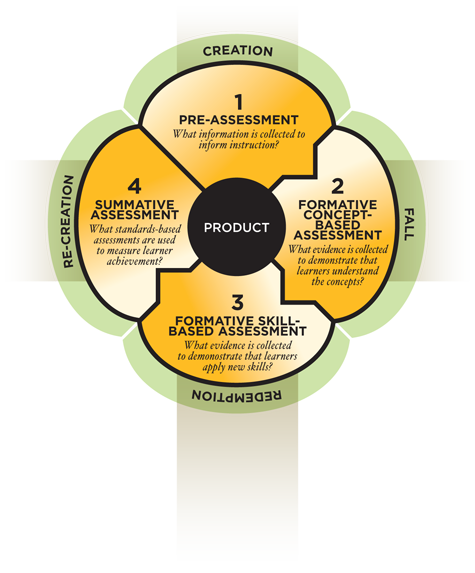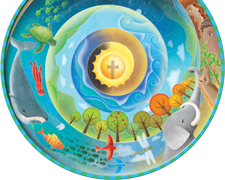Assessment Overview
Assessment is an integral part of the learning and teaching process that should be clearly aligned with the stated curriculum standards and the learning experiences. It should provide ongoing descriptive feedback that is clear, specific, meaningful, and timely. Reflective teachers use a variety of appropriate assessment practices to measure learner achievement and to inform instruction.
The assessment cycle shown here offers a balanced emphasis on these assessment practices. Pre-assessment and summative assessment offer learners opportunity to creatively demonstrate their prior and newly acquired knowledge, respectively. Formative concept-based assessment and formative skill-based assessment provide a variety of ways for learners to demonstrate conceptual understanding and skill development. This model aligns with the work of Marzano, McCarthy, Wiggins, Stiggins, O’Connor, McTighe, and others.
These four stages of assessment not only inform instruction but assist learners to develop self-assessment skills that enable them to assess their own learning, set specific goals, and plan next steps for their learning. The four core curriculum goals of Adventist education, informed by the Adventist worldview, can be consistently assessed as part of this cycle.



